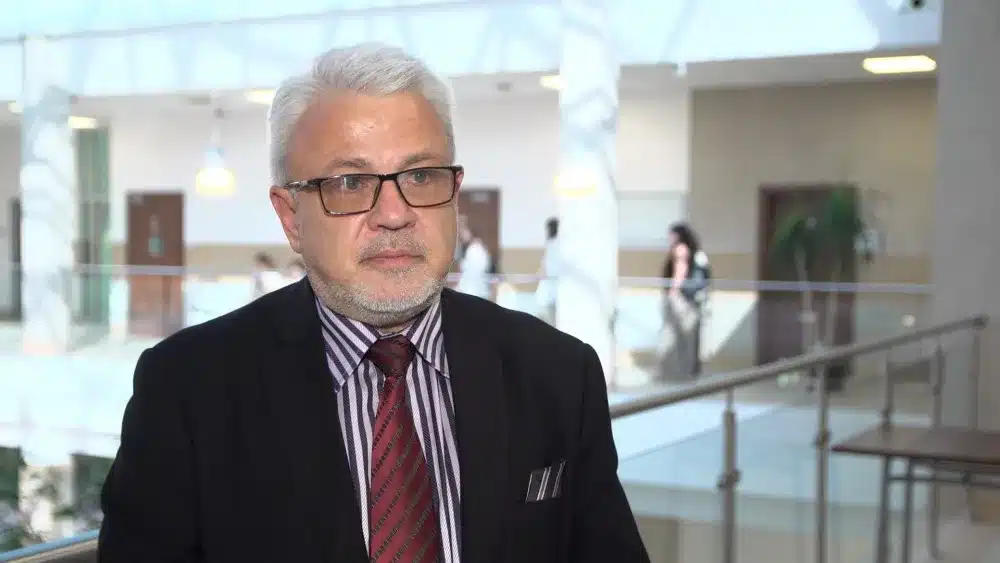The rising number of monkeypox infections in Africa has led the World Health Organization (WHO) to recognize the disease as a global public health threat in mid-August. While WHO assures that there is no cause for panic and that the transmission of the virus is under control, it is crucial for European countries to promptly establish systematic responses to potential health crises as well as measures to prevent the virus transmission. In this context, vaccinations against smallpox, which has proven effective against monkeypox, are of great importance.
Monkeypox (mpox) is a zoonotic infectious disease caused by the MPXV virus. It is transmitted mainly through direct contact, but can also be contracted by contact with infected animals or contaminated materials. The disease has various types (clades Ia, Ib and II), each differing in contagiousness, geographical distribution and varying clinical courses.
So far, monkeypox has mainly occurred in Central Africa but there has been a significant global increase in infections in 2022. The mpox outbreak, which also reached Europe, was caused by the clade II virus. According to the Ministry of Health, from 2022 to August 8 this year, a total of 29 EU/EEA countries reported over 22,000 confirmed cases of monkeypox to the European Centre for Disease Prevention and Control (ECDC). Most of these (93%) were registered in 2022, and the main route of transmission was through sexual contact. The clinical course of most cases was mild, with only 7% requiring hospitalization. According to ECDC data, since the beginning of 2022 to the end of July, over 100,000 confirmed cases of mpox have been reported worldwide in 120 countries, resulting in more than 200 deaths.
In most cases, mpox manifests mild or moderately severe symptoms, similar to influenza. However, while the disease is generally harmless, in some cases it can be fatal.
According to Dr. Bernard Waśko, the director of the National Institute of Public Health of Poland, the majority of patients experience a rash-like symptom, with pustules that later appear on the skin. While occasional complications occur, they are very rare and mostly affect individuals with compromised immunity. These cases experience a longer course of the disease, with severe symptoms that can lead to death.
WHO is currently alarmed by a relatively new variant of the virus (clade Ib), detected in the Democratic Republic of Congo at the end of 2023. This variant has five cases of monkeypox currently exist in numerous countries such as Burundi, Rwanda, Uganda, and Kenya. One case of this strain was also recorded in Sweden at the end of August. According to WHO AFRO data, since the beginning of this year to early September, a total of 15 African countries have reported around 6,000 confirmed cases of mpox. However, the actual number of infections in these countries may be much higher than the official epidemiological reports indicate, and factors such as malnutrition and lack or low level of medical care influence the clinical course of the disease.
The rising number of infections has led WHO to designate monkeypox as a global public health threat for the second time in mid-August, granting it PHEIC status (highest health alert level on the international level). WHO assures that despite the outbreak in Central Africa, there is no cause for panic and transmission is under control. It is however crucial for European countries to establish systematic responses to potential crises and be prepared to detect new infections and implement preventive measures.
In Poland, national guidelines for dealing with potential monkeypox infections are now available on the Ministry of Health’s website. The disease was also a topic of discussion at a plenary session of the European Parliament in mid-September, with members emphasizing the need to prepare for potential health crises. Stella Kyriakides, European Commissioner for Health, stressed that the EU has actively been assisting African nations combat the monkeypox epidemic, having delivered over 200,000 vaccine doses in collaboration with local authorities to DR Congo. She also confirmed that more than 565,000 additional vaccines, effective against both smallpox and monkeypox, would be sent from EU member states to African countries.
The Polish National Institute of Public Health Director asserts that older individuals, who were previously vaccinated against smallpox, should be protected from a severe course of monkeypox, given that the smallpox vaccine confers 70-80% immunity. Meanwhile, younger individuals who have not received the smallpox vaccination pose a relatively low risk.
The Ministry of Health and a national consultant in infectious diseases recommend following preventive measures especially for at-risk individuals such as those in close contact with monkeypox patients or potentially infected material. Diagnosing monkeypox is achieved through PCR tests which identify the virus through genetic material. Available treatments are mainly symptomatic, including antiviral, antipyretic, antipruritic, and pain relief medications.
